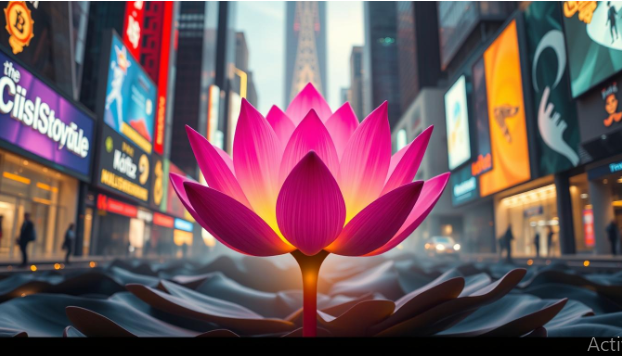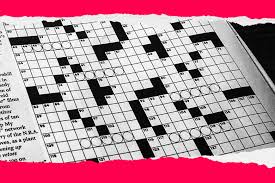
Palladium Competitions: A Glimpse into a World of Innovation and Excellence
Palladium competitions are dynamic events that bring together bright minds, creativity, and cutting-edge ideas. Whether they’re focused on science, engineering, design, or business, these competitions challenge participants to push boundaries and explore new possibilities — often with global impact.
What Are Palladium Competitions?
Palladium competitions are structured contests or challenges where individuals or teams compete to solve complex problems, present innovative solutions, or demonstrate superior skill in a particular field. The term “palladium” often symbolizes something of great value or protection, which reflects the prestige and weight these competitions carry in academic, professional, or industrial circles.
These events are typically hosted by organizations, academic institutions, or industry leaders aiming to foster innovation and talent discovery.
Areas of Focus
While the specific themes can vary, Palladium competitions usually revolve around high-impact areas such as:
-
Technology and Engineering: From designing sustainable energy systems to creating AI-powered tools, tech-based Palladium competitions attract innovators from all over the world.
-
Business and Entrepreneurship: Teams pitch startups, develop go-to-market strategies, and solve real-world business challenges.
-
Design and Architecture: Participants are often asked to reimagine urban spaces, create eco-friendly structures, or develop inclusive product designs.
-
Social Impact and Policy: Competitions might also address global issues like climate change, education, and public health, encouraging actionable and scalable ideas.
Who Can Participate?
These competitions are usually open to a wide range of participants:
-
Students from universities and high schools
-
Professionals in relevant industries
-
Startups and entrepreneurial teams
-
Researchers and academics
Entry criteria often depend on the sponsoring body and the competition’s specific goals. Some are open globally, while others are region-specific.
Benefits of Participating
Engaging in Palladium competitions offers numerous benefits:
-
Skill Development: Participants hone critical thinking, teamwork, communication, and technical skills.
-
Networking: Competitions provide exposure to industry leaders, mentors, and peers from diverse backgrounds.
-
Recognition and Awards: Winners often receive funding, scholarships, internships, or media coverage.
-
Career Boost: Being part of a Palladium competition can stand out on a resume and open doors in academia or industry.
Notable Examples
While “Palladium” may be a symbolic name used in select events, similar high-level competitions include:
-
MIT Solve Challenges
-
XPRIZE Foundation Competitions
-
Red Bull Basement
-
Hult Prize
-
NASA’s Innovation Challenges
If there’s a competition series specifically branded as “Palladium Competitions” (e.g., by an organization or school), it may include its own unique structure, themes, and rewards — and would be worth exploring in its official materials.
Conclusion
Palladium competitions offer a platform for ideas to flourish and for individuals to rise to the occasion. Whether you’re a student aiming to test your skills or a professional looking to make an impact, these competitions provide the opportunity to innovate, connect, and lead the way into the future.
Palladium Competitions – FAQ
1. What are Palladium Competitions?
Palladium Competitions are innovation-driven contests that challenge individuals or teams to solve real-world problems, develop creative solutions, or showcase skills in fields like technology, business, design, and social impact.
2. Who can participate in a Palladium Competition?
Eligibility varies by competition, but participants often include:
-
High school and university students
-
Early-career professionals
-
Startups and entrepreneurs
-
Industry experts and academics
Be sure to check the specific eligibility criteria for each competition.
3. How do I register?
Registration is typically done online through the official competition website. You may need to:
-
Create a participant profile
-
Submit an abstract or proposal
-
Pay a registration fee (if applicable)
Deadlines and requirements will be listed on the registration page.
4. What kind of challenges or themes are included?
Themes vary depending on the organizing body. Common topics include:
-
Renewable energy
-
Artificial intelligence and data science
-
Health and biotechnology
-
Urban planning and architecture
-
Business innovation
-
Social equity and sustainability
5. Is there a fee to enter?
Some competitions are free to enter, especially for students. Others may have a nominal registration fee to cover event costs or access to resources. Always check the terms before signing up.
6. What are the benefits of participating?
Participants gain:
-
Practical experience solving real-world challenges
-
Mentorship from experts
-
Access to professional networks
-
Prizes, grants, or funding opportunities
-
Recognition and resume-building achievements
7. Do I need a team to join?
Many competitions accept both individual and team entries. Some even allow individuals to be matched with a team during the registration process. Check the rules for team size limits and collaboration guidelines.
8. What are the judging criteria?
Judges typically evaluate based on:
-
Innovation and originality
-
Feasibility and scalability
-
Technical or strategic quality
-
Presentation and communication
-
Social or market impact
Details will be provided in the competition’s rulebook or guidelines.
9. How long does a typical competition last?
The timeline can range from a 48-hour hackathon to a multi-month project. Each event has a specific schedule with phases like registration, mentoring, submission, and finals.
10. Are prizes awarded?
Yes, many Palladium Competitions offer prizes such as:
-
Cash awards
-
Scholarships or fellowships
-
Incubation or funding for project development
-
Media exposure and publication opportunities
-
Internship or job placements
11. How do I stay informed about upcoming competitions?
You can:
-
Subscribe to the official Palladium Competitions newsletter
-
Follow the organizers on social media
-
Join mailing lists or community groups related to your industry or interests


